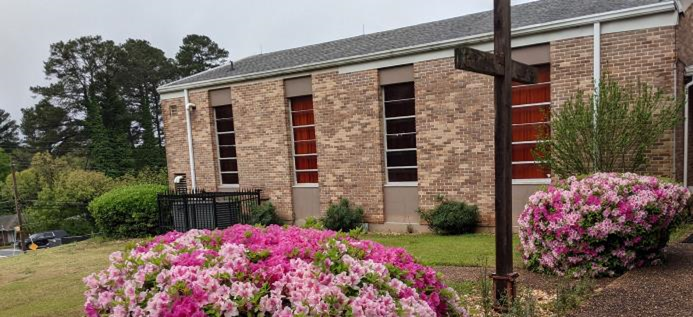Episodes

Sunday Jun 14, 2020
Sunday Jun 14, 2020
“Anatomy of an Illness: The Church’s Ministry of Healing”
John 9:13-16 (Part 3)
I First, sickness gets our attention and it gets the attention of Jesus (9:1).
II Second, sickness makes us uncomfortable (9:2).
III Third, sickness is caused by alienation (9:2).
IV Fourth, oftentimes our best theological or commonsense explanations for sickness are not good enough (9:3a).
V Fifth, sometimes sickness happens for a good reason, so that God can be glorified in our life (9:3b).
VI Sixth, all believers in Jesus are called to help sick people find health (9:4).
VII Seventh, sickness is a work of the kingdom of darkness; healing is a work of the Kingdom of light (9:5).
VIII Eighth, the how of healing is very important (9:6).
IX Ninth, sickness can be overcome by divine healing, but healing does not happen without some action on our part (9:7).
X Tenth, divine healing will always arouse doubt (9:8-9).
XI Eleventh, the response to the healing of sickness is often questions (9:10-12)
XII Twelfth, healing is not only a debated topic, it is also a very divisive issue.
A. Four truths stand out in these four verses:
1. First, people are often divided over what kind of authority to consult when a miracle has occurred.
2. Second, in the presence of a miracle people will often create division by looking for some reason to call a miracle of healing into question.
3. Third, in the presence of a miracle, people often create division by focusing on the __________ question rather than the __________ question.
a. John says the Pharisees “also” asked the healed man how he was healed because the neighbors, and the crowd who originally witnessed the miracle, had a______________ asked the very same question.
i. Sometimes sick people are miraculously healed and no one is involved except the ___________ person and _________.
ii. If that had been the case with the healing of the blind man, then there would have been n_______________ the Pharisees could say.
iii. The crucial question became this: Was this man healed in a way that __________ or _________ ___________ violate the Sabbath?
b. There were ____________ ways in which Jesus’ actions could have been seen as a violation of how the Pharisees understood the Sabbath.
i. First, Jesus mixed ____________ with __________ to make mud on the Sabbath day.
ii. Second, Jesus sent the man on a journey which may have been l_____________ than what was allowed on the Sabbath.
iii. Third, Jesus, according to the Pharisee’s rules, did not have a good r¬¬¬¬¬_______________ for violating the Sabbath.
c. This means that the Pharisees could have accused Jesus of ____________ Sabbath violations, if the man who was healed had told them all he c_____________ have told them.
-Notice, how the healed man answers the “How?” questions of the Pharisees:
i. First, he doesn’t say anything about how Jesus made the ____________.
ii. Second, he simply says, “And I washed,” without mentioning his j____________ to the Pool of Siloam.
iii. Third, the formerly blind man does admit that Jesus did heal him on the Sabbath, but he could not deny that and be t_________________.
d. I believe it is still true today that when people are confronted with a miracle … they jump to the ________________ question.
-Why do they do that?
i. First, they want to know how because they want to find a way to explain the miracle that is not m______________________.
ii. Second, people jump to the how question because they are looking for a m________________ which they can use by themselves.
iii. Third, we ask the how question because if we believe the person who claims to be healed, and we decide to seek healing for ourselves, we want to make sure that we do not need to do something that would be u_______________________ or e____________________ for us.
e. When it comes to sickness and healing, not only do people want to focus on the “How,” what is even worse is that they tend to ignore the ____________.
f. In all the healing miracles in the Gospels, it was always the s__________ who. This tells us that it is the who which is the most i_____________ element of healing.
g. We see that the Pharisees were focused on the “how” because they wanted to c___________________ Jesus. The healed man, on the other hand, was focused on the “who” because he wanted to h______________ Jesus.
H. If the who is one who has sufficient power to accomplish anything, then the how question no longer m__________.


No comments yet. Be the first to say something!